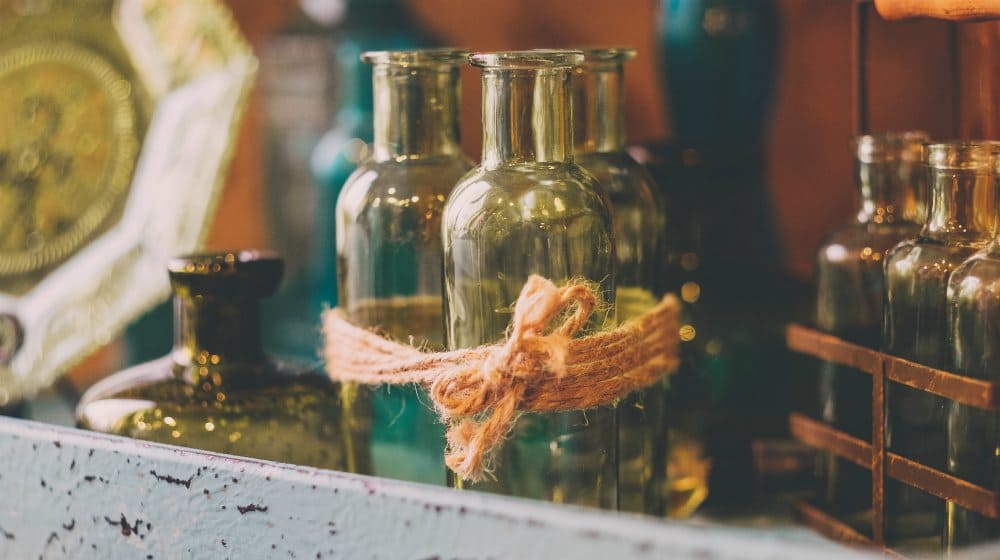For all of the helpful and informative websites and blogs that paint an accurate depiction of the benefits of essential oils, you?re bound to come across some non-believers if you?re using the Internet to do your research. You?ll most likely run into some skeptics and a few essential oil criticisms that?claim that aromatherapy particularly and all of the healing properties of natural extracts are a fraud or a scam.
Debunking Essential Oil Criticisms
They might also claim that companies and manufacturers who market the oils are over-exaggerating about the restorative nature of the products, and that it?s all a trick of the mind. However, it?s clear that these critics have really not done their homework and shouldn’t be given much merit?on your quest to find physical and psychological peace through essential oil use. Let?s look at why those who argue against the validity of essential oils and aromatherapy in particular are incorrect, and why you should never doubt the all-natural restoration that comes from working with these materials.

Common Criticism
One of the most common and frequently-occurring criticisms facing essential oil use is that it is called a ?soft science.? What this means is that non-believers feel that since there is no set formula for how each individual will respond to certain essential oils. For example, some individuals will feel the benefits of stress-relief when using lavender oil; others might not and will experience these feelings of stress-relief when using a different essential oil such as chamomile or lemongrass.
Critics are quick to find fault with this without realizing that the same comparison can be drawn to manufactured medications. As doctors always inform patients that they may or may not feel the intended effects of a prescription medication, aromatherapists will be quick to tell their clients the same. No aromatherapist or licensed professional who works with essential oils will ever claim that one type of oil will affect every human being the same way, just as no doctor would make the statement that a certain medication will positively affect all patients who seek treatment.
“Aromatherapy” Judgements
Aromatherapy and essential oil use can sometimes create a negative association when certain people hear the word. This comes from the false belief that aromatherapy is about ?the smell of things? rather than ?things that smell.? This might not sound like a big difference, but rearranging the order of those words actually changes the meaning and perception entirely. Yes, essential oils smell strong and fresh and crisp, or sweet and pleasant and relaxing. However, many people forget what is actually taking place when inhaling the scents of essential oils, or using them physically on the body.
The oils contain chemotherapy agents, anti-inflammatory agents, and wound-healing agents that are released and absorbed through inhalation or direct skin contact; the pleasant aroma that accompanies these healing benefits is just a bonus. By looking at essential oil use and aromatherapy through this approach, you will see how aromatherapy is not simply about ?the smell of things? – rather, it is about things that heal, restore, and nurture while also happening to be ?things that smell.?
Man-made Medications
As a society with a strong emphasis on man-made medications, we can feel hesitant towards those who claim that something so foreign to our beliefs can actually heal, and do it with no risk of negative side effects. Since essential oils cannot be patented and sold as ?medicines? in the way that we think of Tylenol or Ibuprofen, many people are skeptical when they hear essential oils can heal and claim the essential oil criticisms that simply aren’t true.
The human body is designed to naturally accept and work with the naturally-occurring molecules; in fact, you might sooner feel the positive benefits of essential oil use more immediately than synthetic drugs, as the body is set up to metabolize these non-toxic molecules more quickly, bringing about fast relief. And while synthetic drugs that are human manufactured can certainly be beneficial and bring about their own healing, at the end of the day they are undoubtedly unnatural agents that are being introduced to a bodily system that is sometimes unsure of how to handle their presence.
It can be hard to know what to believe when it comes to making an important decision about the most natural and beneficial ways to treat your body and mind. While essential oils and the practice of aromatherapy face lots of criticism in today?s society, this negative and false perception needs to be changed in order to allow more individuals to embrace this natural and non-toxic way of relieving all types of pains and ailments in order to reach maximum happiness, ease, and relief.
What Do you think of our article?Do Essential Oils REALLY Work? Debunking Essential Oil Criticisms? Let us know in the comment section below!
Up Next:?7 Essential Oils for Arthritis
We may earn a commission for purchases made using our links. Please see our disclosure to learn more. We appreciate your support SO very much.









